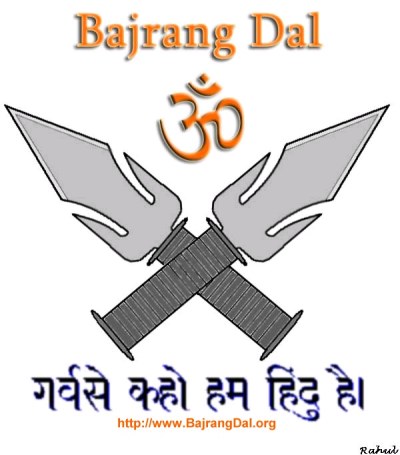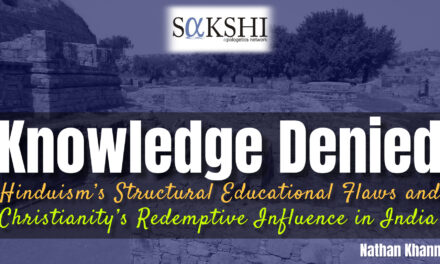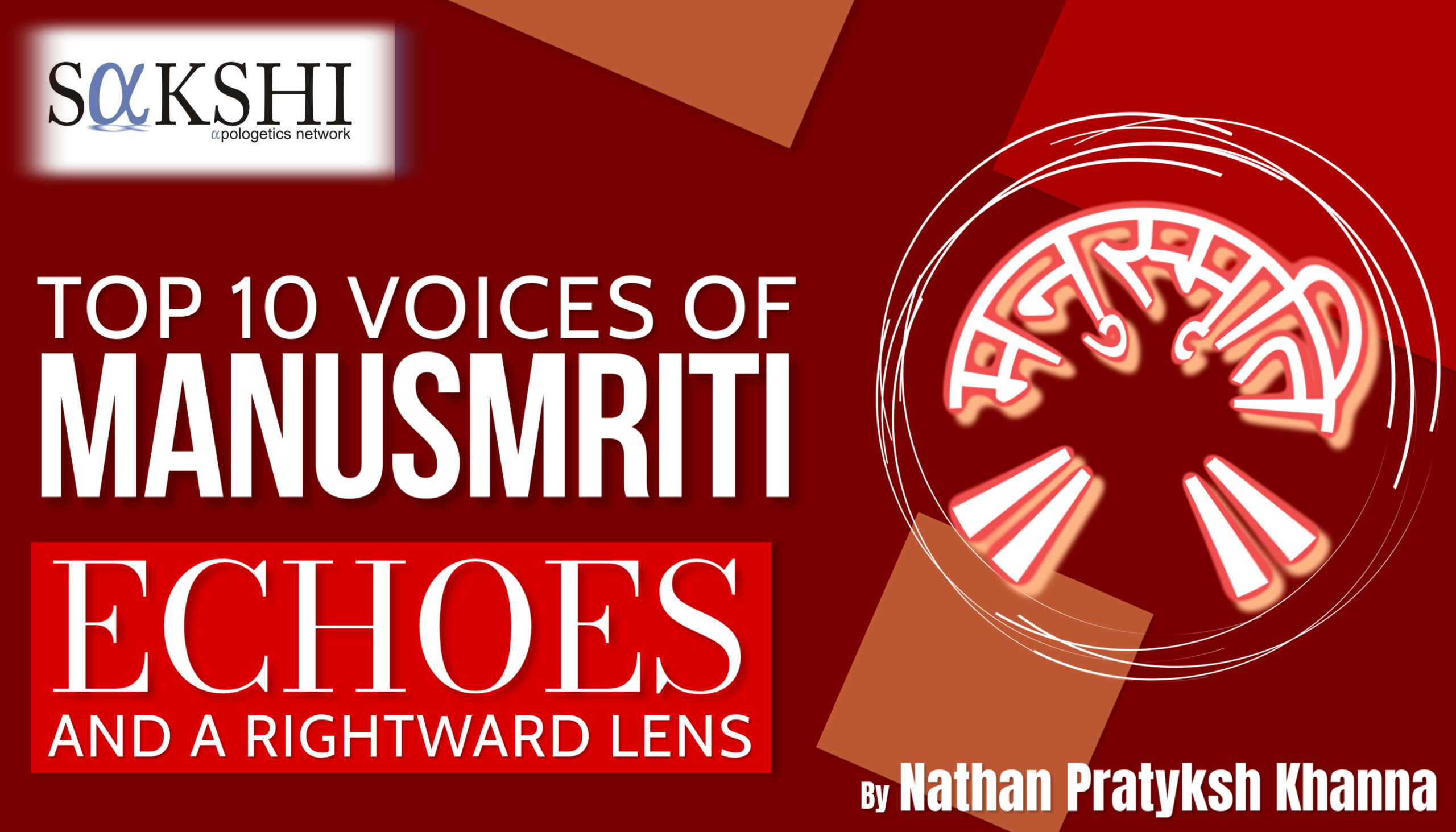 There has been a hue and cry against pamphlets written and distributed in Karnataka which supposedly spoke ill about Hindu gods and goddess. The Bajrang Dal justified their vandalism and violence on the pretext of this pamphlet. That pamphlet was supposedly titled as ‘Satya Darshini’. Sakshi Research Team, by whatever little have read finds it similar to Satyrath Prakash written by Swami Dayananda Sarawasti of Araya Samaj. Will the Bajrang Dal vandalize Araya Samaj also?
There has been a hue and cry against pamphlets written and distributed in Karnataka which supposedly spoke ill about Hindu gods and goddess. The Bajrang Dal justified their vandalism and violence on the pretext of this pamphlet. That pamphlet was supposedly titled as ‘Satya Darshini’. Sakshi Research Team, by whatever little have read finds it similar to Satyrath Prakash written by Swami Dayananda Sarawasti of Araya Samaj. Will the Bajrang Dal vandalize Araya Samaj also?
In one of the websites, Desicritics.org, Vivek Bharat wrote an article titled “I Too Am Hurt Dear Father”. After reading the article, we wondered whether the author will argue against Swami Dayanand Sarawsati too.
Vivek’s arguments can be summarized to two:
(1) Christians are criticizing Hindu gods and goddess
(2) Christians and Muslims are benefitting from the money collected from temple
We dismiss the second argument with the contempt that it deserves. One has to only read our recent e-book Sakshi Online Book: Constitutional Validity of Anti-Conversion Laws to understand how much the Indian laws and verdicts are biased against Christians. Similarly from the tax that every non-Hindu pays to government, the government tries to protect the reservation only to Hindus and ‘indigenous religions’ and not to mention the tax exemption that Hindu undivided family gets. If Government of India remains truly neutral to all religions in its laws and actions, Christians stands to benefit much. As of now, many laws are against the Christian faith.
Making Our Position Clear: However, we take the first argument – Christians are criticizing Hindu gods and goddess. At the outset we agree that best way to propagate one’s religion is not by criticizing other’s religion. But there are occasions when it is required to examine the merits and demerits of each religion. As long as the arguments are true and not false accusations, no one should object to raising those but rather explain to the critics how they must understand that.
Further, if the arguments are false, even then it does not warrant a physical violence. But there should be a strong refutation. We had taken this stand at the time of the publishing of Da Vinci Code. We disagreed with the Christians who demanded a ban. We were of the opinion that there is no easy way to live in a secular democracy where everyone has the right to speak irrespective of whether it is right or wrong. It is our duty to logically defend and establish the truth. It is tough to live in a secular democracy. But that is our calling.
With this in background, we now argue that Vivek’s arguments against Christian missionaries are ill placed in a secular democracy. This does not be construed as an endorsement for any literature which we are not associated with.
Satya Darshini- the Mangalore Pamphlet:
Vivek has argued that: “The immediate provocation for the current imbroglio appears to be a pamphlet titled Satya Darshini (everybody agrees to that) that was being freely distributed among members of the New Life Fellowship sect of the Pentecost Mission in Mangalore and which contained derogatory references to Hindu Gods and Goddesses. The book, originally written in Telugu by one Rev Paravastu Sooryanarayana, has been translated into Kannada by Sriramreddy of Bangalore, and revised by Rev Samson S Malekar of Davangere. The book replete with disparaging remarks about Hinduism, is basically a litany of hate.
I reproduce below a couple of excerpts (translated into English) that reflect the ugly tenor of the publication:
Urvashi – the daughter of Narayana- is a prostitute. Vashitha is the son of this prostitute. He in turn married his own Mother. Such a degraded person is the Guru of the Hindu God Rama. (page 48)
When Krishna himself is wallowing in darkness of hell, how can he enlighten others? Since Krishna himself is a shady character, there is a need for us to liberate his misled followers. (page 50)"
We would have been extremely grateful to Vivek had he quoted from his own scriptures and given us the correct picture. If these were false remarks we
could have thus completely disassociated from such literature and disowned those had written it. In fact, we could have also taken some effort to educate any Christian who adventures into falsehood to propagate his religion. Such Christians should be first excommunicated by Christians themselves. However, now we only know that Vivek got hurt by such comments and not whether such comments are true or not.
Satyrath Prakash by Swami Dayanand
We would like our readers to read the following comments from Satyarth Prakash and see whether it is any different in tone and charge from the above two comments.
“The Vaishnava sect took its birth 150 years after Raja Bhoja. The founder Shathakopa was the son of a professional prostitute. In his time the movement achieved some successl his successor was Munivahana the son of a scavenger. He was succeeded by Yavanacharya who was born in a Mohammedan family. The fourth was Ramanuja, a Braahaman by birth. He propagated this creed. The Shivites had the Shiva Puran, and the Shaktas their Devi Bhagvat Puran, so the Vaishnavites their Vishnu Puran.
The authors did not publish these books in their own names, but instead fathered their publications on sages, and seers like Vyasa fearing that no one would attach any weight to what was published in their own name. These books should appropriately have been names Navina (i.e., of recent date). But there is nothing to wonder at if a poor man named his son Maharaj Adhiraja (Emperor), and if a thing of recent origin was named Sanatan (ancient). The contents of the Puranas bear on them the stamp of the internecine warfare of these sects.
Mark! It is written in the Devi Bhagvat Purana that a goddess named Shri, the mistress of Shripur, was the author of the universe. She also created Brahma, Vishnu and Mahadeva. She willed and then rubbed her hands and lo! There was a blister out of which Brahma was born. The goddess asked him to marry her. Brahma replied, "Thou ar my mother, therefore, it does not behove me to marry thee." This enraged the mother goddess and she reduced her son to ashes. She again rubbed her hands and produced another son in the same way. She named him Vishnu. The same proposal was made to him with the like result. He too was reduced to ashes.
A third son was brought into being in the same way. She named him Mahadeva and made a proposal of marriage to him. Mahadeva replied, " I cannot marry thee, unless thou art metamorphosed into a different woman." She did the needful. Then Mahadeva asked her, "What do these two heaps of ashes signify?" The goddess replied, "These are the mortal remains of thy brothers. They did not obey my orders and were therefore reduced to ashes." Mahadeva replied, "What shall I alone do? Bring them to life again and produce two other girls and let the three of us marry the three of them." The goddess did what was asked of her and thus the three couples were married. What a shame! The fellows did not marry their mother but married their own sisters!!! Can this action be regarded morally justifiable?
Thereafter the goddess brought into existence Indra, etc. (Brahma, Vishnu, Rudra, Indra, were appointed as palanquin bearers of the goddess). Many such yarns have been spun out (in this book). It might be asked (of the Shaktas), "What was the body of the goddess like? Who were her parents? Who was the creator of that Shripur." Should they say back in reply that the goddess had no beginning, it could not be right because whatever is the product of combination of elements must needs have a beginning.
If the marriage if a mother with her son be a sin, why should not the marriage between brothers and sisters be regarded likewise? Just as in the Devi Bhagvat Purana, Mahadeva, Vishnu, Brahma, etc., have been spoken of disparagingly whilst the goddess (Devi) has been exalted, in like manner in the Shiva Puran the Devi, etc., have been held up to contempt. All these have been described therein as the servants of Mahadeva who is proclaimed their Lord and Master.
Now if the wearing of the stones of a fruit and the besmearing of the body with ashes can lead to salvation, why then the donkeys and pigs and other animals who wallow in dust, and Bhil and other low-born men who wear strings of fruit-stones on their bodies are already saved.”
Now, this is written by Araya Samaj Founder Swami Dayanand in his book Satyarth Prakash. (You can read it here http://www.aryasamajjamnagar.org/chaptereleven.htm#10)
Swami Dayanand similarly wrote about Islam and Christianity too. Shall we all vandalize Araya Samaj and ask for banning of his book. If we ban Swami Dayanand’s book, should we also ban the books of Dr. Radhakrishan which makes petty comments about Christianity? It is time for everyone to realize that we are in a democracy and defend their religions only by means of reasonable response and not by trishuls and swords.
We conclude by a quote widely attributed to Voltaire “I disapprove of what you say, but I will defend to the death your right to say it.” We do not know whether Voltaire really said it or not. But that we think is the right attitude to live in democratic society and not say “I Too Am Hurt Dear Father” and compare verbal criticisms with physical violence.
"All elders must be strong in the word, able to refute false doctrine (Titus 1:9)". If all the religious leaders follow this principle and not use physcial force against opponents, then India will be truly democratic.
{moscomment}




